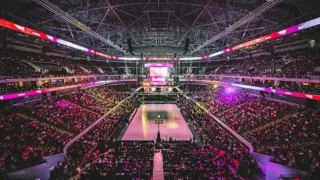How AI is Training Tomorrow's Champions
Last updated on Aug 30, 2024 10:44 PM

Artificial intelligence is no longer just a tool for predicting weather or optimizing business operations; it's now coaching athletes towards peak performance with unprecedented precision. Sports teams around the globe are leveraging AI to tailor training programs that respond dynamically to an athlete's immediate needs. Interestingly, even platforms like 1xbetmyanmar, primarily recognized for sports betting, are harnessing the predictive power of AI to enhance user engagement, showing the technology's broad applicability. This trend of utilizing data-oriented strategies is pivotal in elevating the training regimes of athletes, ensuring every sprint, jump, and swing is informed by cutting-edge technology.
Personalized training at scale
The true marvel of AI in sports training lies in its ability to analyze vast amounts of data from athletes' performances and provide bespoke training recommendations. Consider the following:
-
Wearable technology that monitors heart rate, muscle strain, and fatigue levels.
-
Video analysis software that critiques form and technique.
-
Simulation tools that prepare athletes for a variety of competitive scenarios.
These AI-driven tools not only predict outcomes but also prescribe optimized training routines that are specific to the individual athlete’s needs, enabling coaches to handle larger teams without compromising on the quality of training.
Enhanced coaching decisions
AI does not aim to replace human coaches but to augment their capabilities. With comprehensive data analysis, AI can offer insights that are beyond human detection. For instance, it might highlight subtle patterns in an athlete’s performance that predict fatigue or risk of injury, allowing for timely intervention. This capability transforms how coaches approach training and game-day decisions, fostering a smarter, more responsive coaching environment.
Real-time feedback and adaptation
The integration of AI into sports training also brings the advantage of instant feedback for athletes. This can be broken down into several key areas:
-
Immediate corrections during training sessions, allowing for real-time adjustments.
-
Predictive analytics to forecast potential performance blocks or injury risks.
-
Dynamic adjustment of training loads and intensities based on real-time data.
-
Enhanced virtual reality simulations that replicate real-world conditions with precision.
-
Personalized recovery plans that adapt based on post-training data.
This aspect of AI ensures that training is not only about reacting to past performances but also proactively shaping future outcomes.
Future prospects in AI-driven sports training
The potential of AI in sports training is boundless. As technology advances, the integration of AI in athletic preparation will only become more profound, offering more comprehensive and interactive training experiences. The future may see AI becoming a ubiquitous presence in all levels of sports, from grassroots to professional leagues, profoundly impacting how athletes train, perform, and recover. With each advancement, the gap between human capabilities and technological enhancements diminishes, leading to new heights in athletic performance.
In conclusion, AI's role in transforming sports training online is a testament to how modern technology can elevate traditional practices to unprecedented heights. As AI continues to evolve and integrate into the sports industry, it promises not only to train tomorrow's champions but also to redefine the parameters of athletic performance and coaching strategies. This is an exciting era for sports technology, one that will undoubtedly shape the future of athletic training for generations to come, making the impossible seem possible and the unimaginable routine.














Give Your Feedback